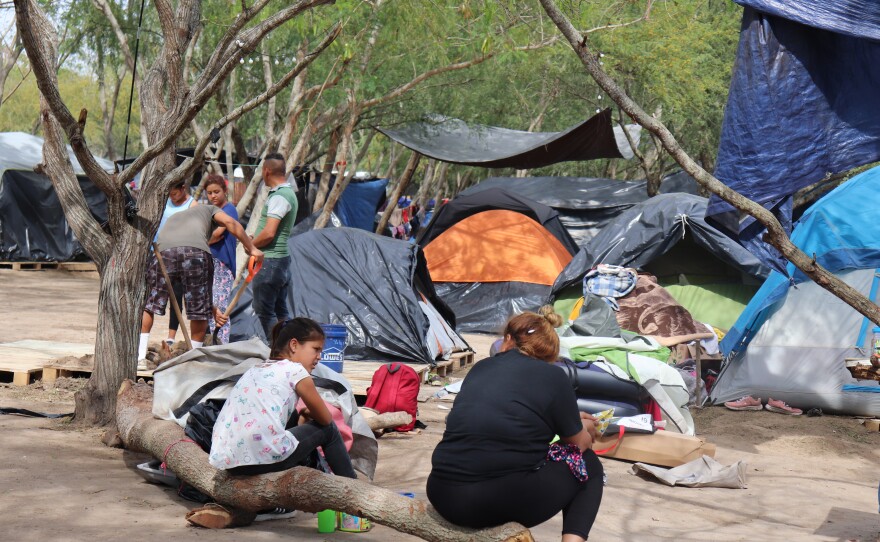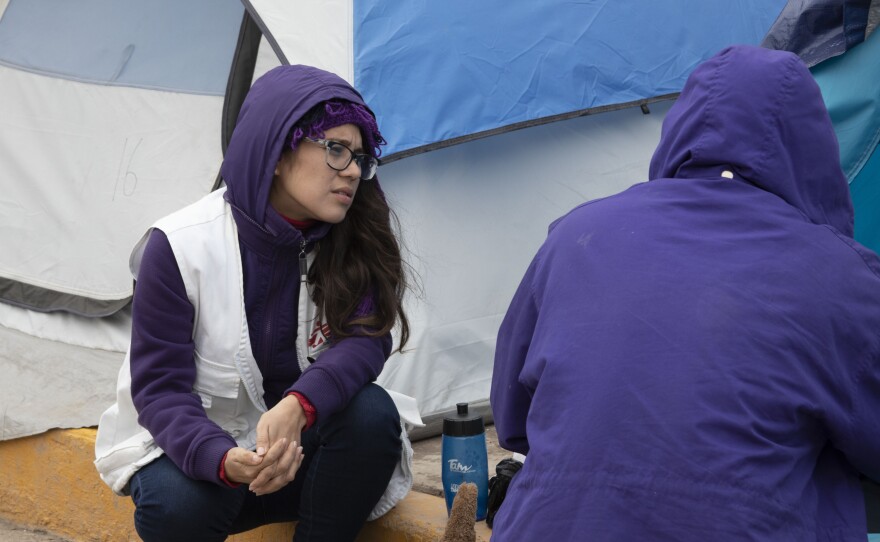Thousands of migrants awaiting asylum hearings in Mexico now face a greater threat with the outbreak of COVID-19. The international medical humanitarian organization, Doctors Without Borders, is on the frontlines responding to the crisis.
Then, Guatemala closed its borders and airports last month to try and stem the spread of the coronavirus. Up until a few days ago, there was one exception for in-bound flights relating to immigration enforcement.

Doctors Without Borders Says Migrant Camps In Mexico At High Risk For COVID-19
Around 2,000 migrants are in limbo as they wait in the Mexican border city of Matamoros.
The Trump administration’s Migrant Protection Protocols, or MPP, forces these migrants to wait in Mexico while their asylum cases make their way through the U.S. immigration court system.
This week, the Justice Department announced asylum hearings will be delayed for a second time in response to the coronavirus pandemic. The soonest they’ll be able to get their day in court is May 1.
The outbreak of COVID-19 has also led to the indefinite closure of the U.S.–Mexico border to non-essential traffic. Doctors Without Borders calls the administration's actions a “blanket ban on asylum seekers” that not only endangers the lives of migrants, but of public health in general.
The organization — known as MSF for its French title, Médecins Sans Frontières — has witnessed migrants and asylum seekers at the border forced to return to dangerous, unsanitary makeshift encampments in Matamoros and to locations further south into Mexico. MSF believes these actions are counterproductive to controlling an outbreak.
Valerio Granello is a project coordinator for MSF in Matamoros and Reynosa, Mexico. He spoke to Fronteras from a migrant tent encampment in Matamoros about the conditions he’s witnessing firsthand and how ill-equipped the area is for an outbreak of this deadly disease.


Guatemala has sealed its borders and banned the arrival of commercial flights, including those from the U.S., in an attempt to stem the spread of the COVID-19 virus. Cargo is exempted, but commercial flights are banned for the time being. However, there is one exception in Guatemala's aviation profile and it has to do with immigration enforcement.
Deportations from the U.S. continue. Flights carrying one subset of the migration mosaic, asylum seekers from Honduras and El Salvador, were also taking off until recently to Guatemala, with the planes departing from Texas.
In March, those particular deportation flights were temporarily suspended. However, many detainees have already landed in Guatemala and claim they were misled about where they were going in the first place.
They were sent to Guatemala under the terms of a Trump administration policy that is under challenge in U.S. federal court. Opponents claim U.S. law and international treaty obligations are being violated by sending people to countries where they will face danger.
Once they arrived, they were given 72 hours to apply for asylum in Guatemala. But with only eight asylum officers in that country, it can take years for their case to process and very few are accepted.
With no access to the U.S. due to MPP restrictions, dangerous conditions in their home countries that led them to flee in the first place, and now a global pandemic unraveling faster than it can be controlled, asylum seekers are now caught in a deeper state of uncertainty.
Norma Martinez can be reached at norma@tpr.org and on Twitter @NormDog1 and Lauren Terrazas can be reached at lauren@tpr.org and on Twitter @terrazas_lauren.






